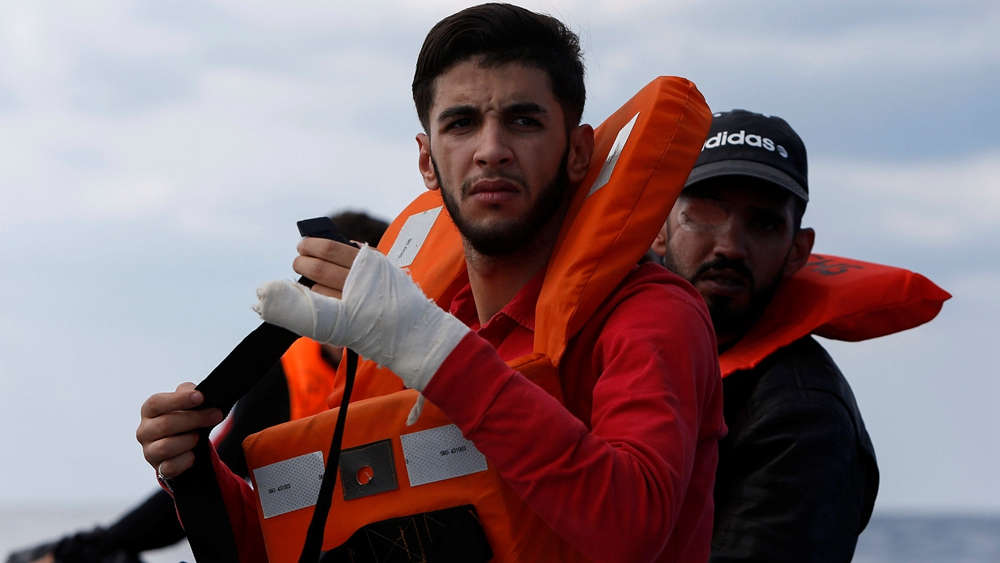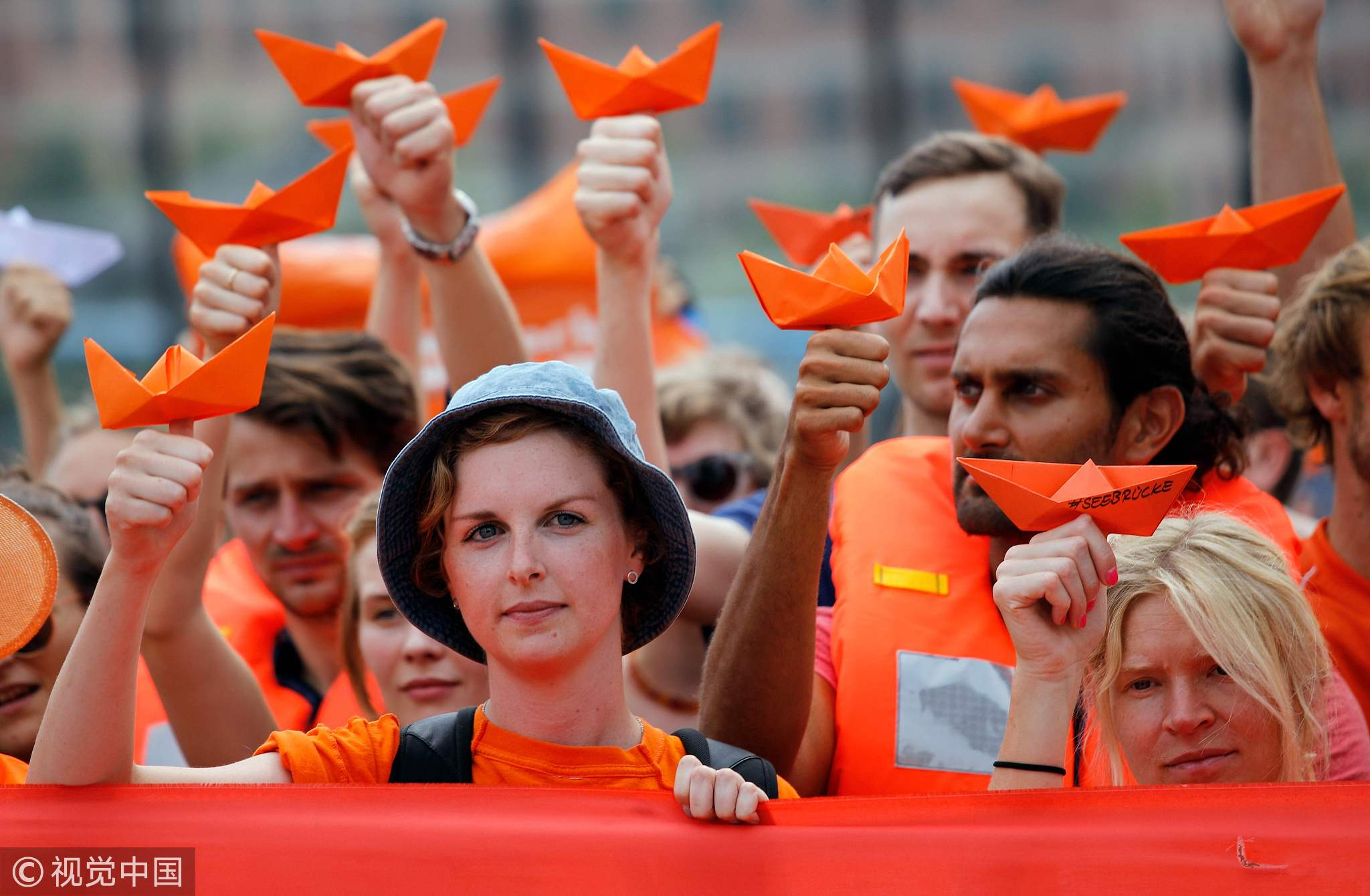
World
21:59, 08-Oct-2018
Germany steps up migrant deportations to North Africa
Updated
21:12, 11-Oct-2018
CGTN

Germany has boosted the number of repatriations of rejected asylum seekers to Algeria, Morocco and Tunisia, following years of diplomatic pressure on the Maghreb states.
"We have managed to improve cooperation with these countries, which has resulted in a rise of repatriations," said an interior ministry spokesman on Monday.
Between 2015 and last year, repatriations from the biggest EU economy to Algeria rose from 57 to 504, he said.
To Morocco, they increased from 61 to 634, and to Tunisia from 17 to 251 over the same period.

December 22, 2016: Two women stand inside the Kaiser-Wilhelm-Gedaechtniskirche (Kaiser Wilhelm Memorial Church) in Berlin, to sign the book of condolence for the victims of the Christmas market attack. /VCG Photo
December 22, 2016: Two women stand inside the Kaiser-Wilhelm-Gedaechtniskirche (Kaiser Wilhelm Memorial Church) in Berlin, to sign the book of condolence for the victims of the Christmas market attack. /VCG Photo
Immigration and refugee flow became a flashpoint issue in Germany after Chancellor Angela Merkel decided in 2015 to keep borders open to a mass influx of people fleeing war and misery, half of them from Iraq, Syria and Afghanistan.
The move earned her praise from liberal commentators but also sparked a xenophobic backlash that a year ago saw the far-right and anti-Islam Alternative for Germany enter parliament for the first time.
Public fears have been heightened by several jihadist attacks, especially a 2016 truck rampage through a Berlin Christmas market that killed 12 and was attributed to Tunisian rejected asylum seeker Anis Amri.

Supporters of the Sealift (Seebruecke) group hold up small paper ships as they take part in a rally calling for safe routes for refugees and to stop the criminalization of sea rescue at Potzdamer Platz in Berlin, August 4, 2018. /VCG Photo
Supporters of the Sealift (Seebruecke) group hold up small paper ships as they take part in a rally calling for safe routes for refugees and to stop the criminalization of sea rescue at Potzdamer Platz in Berlin, August 4, 2018. /VCG Photo
Germany has since pushed hard to reduce migrant flows, especially of those deemed to be fleeing poverty rather than conflict.
Bild daily quoted unnamed German security sources saying that "intensive negotiations" had improved cooperation with the Maghreb states, especially in exchanging biometric data to identify deportees and issue them new travel documents.
Merkel's government has also repeatedly tried to add the three North African states to its list of "safe countries of origin," which would vastly raise the hurdles for asylum requests by its citizens.
However, the passage of the bill into law has been blocked in the upper house by states ruled by the left-leaning Greens party, which argues the three Maghreb nations cannot be considered "safe" yet.
(Top image: Injured Libyan migrants on a wooden boat await rescue by the migrant search and rescue vessel MV Seefuchs of the German NGO Sea-Eye south of the Al Jurf Oilfield, some 45 nautical miles off the coast of Libya, October 1, 2017. /VCG Photo)
Source(s): AFP

SITEMAP
Copyright © 2018 CGTN. Beijing ICP prepared NO.16065310-3
Copyright © 2018 CGTN. Beijing ICP prepared NO.16065310-3